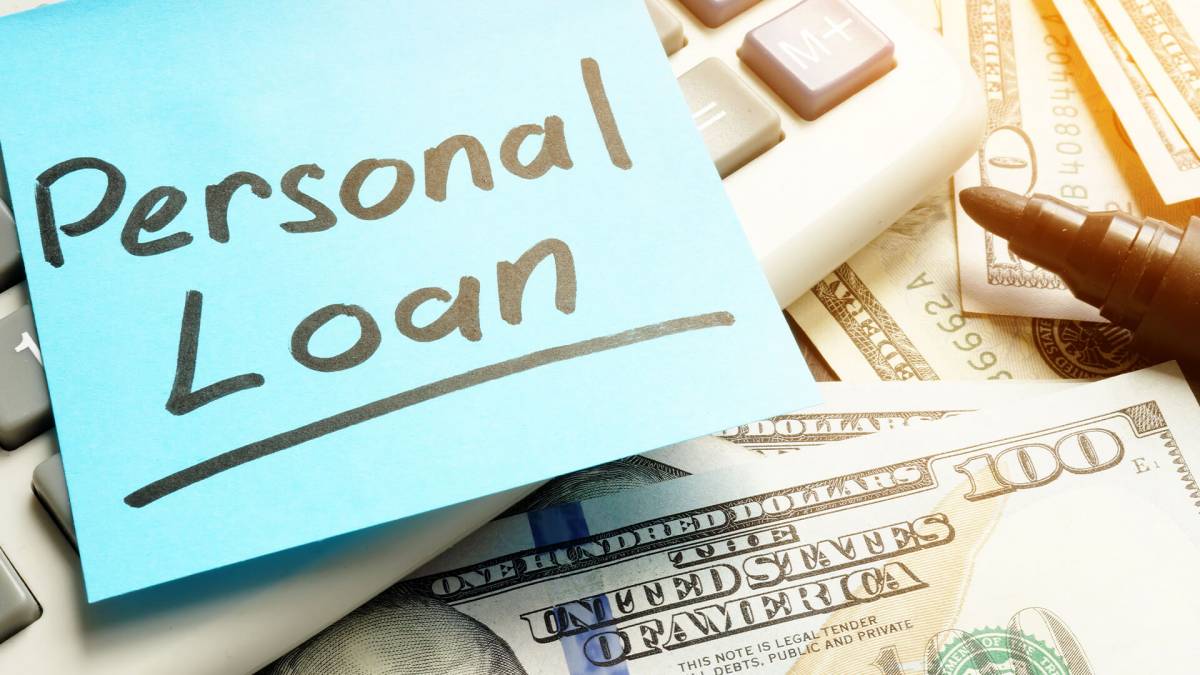Can You get a personal Loan as non-Us Citizen? Navigating the financial landscape in the United States can be daunting, especially for non-US citizens who may wonder about their eligibility for personal loans.
Can You Get a Personal Loan as a Non-US Citizen?
Whether you’re in the country on a work visa, a student visa, or another type of non-immigrant visa, understanding your options can help you manage your finances effectively. This article explores the possibilities and requirements for obtaining a personal loan as a non-US citizen.
Understanding Your Eligibility
The first step in securing a personal loan as a non-US citizen is understanding your eligibility. Most US lenders have specific requirements that must be met, which include:

- Residency Status: You need to have a valid visa that allows you to stay in the country for the duration of the loan term. Common visas include H-1B, L-1, O-1, and F-1.
- Credit History: Building a credit history in the US is crucial. Lenders will look at your credit score to determine your creditworthiness. If you’re new to the country, you might need to start building your credit with secured credit cards or through a credit builder loan.
- Employment and Income: Stable employment and a sufficient income are important to show lenders that you can repay the loan. You’ll need to provide proof of employment and income through pay stubs, bank statements, and tax returns.
- Social Security Number (SSN) or Individual Taxpayer Identification Number (ITIN): While an SSN is generally required, some lenders will accept an ITIN as a substitute, which non-citizens can apply for Can You get a personal Loan as non-Us Citizen.
Finding the Right Lender
Not all lenders offer loans to non-US citizens, so finding the right lender is key. Here are a few options:
- Banks and Credit Unions: Some banks and credit unions offer personal loans to non-citizens, particularly those who have an account with them and have established a good banking relationship.
- Online Lenders: Many online lenders are flexible regarding non-US citizen applications. They often require less paperwork and provide quicker funding compared to traditional banks.
- Peer-to-Peer Platforms: These platforms allow you to obtain loans funded by individual investors rather than institutions. They often have more flexible criteria, which might be beneficial for non-citizens.
Required Documentation
When applying for a personal loan, you’ll likely need to provide the following:
- Passport and Visa: Proof of legal entry into the United States and your current visa status.
- Proof of Address: Utility bills or lease agreements can serve as proof of residence.
- Income Verification: Recent pay stubs and tax returns.
- Credit Score Information: Access to your credit report or scores, if available.
Tips for Success
- Start Building Credit: Obtain a secured credit card or become an authorized user on someone else’s credit card.
- Maintain a Stable Job: Lenders favor applicants with steady employment.
- Compare Different Lenders: Look for the best interest rates and terms that suit your financial situation.
Getting a personal loan can be a daunting process, especially for non-US citizens unfamiliar with the American financial system. Understanding the availability and requirements can significantly affect financial planning and opportunities. This article will explore how non-US citizens can navigate obtaining a personal loan in the United States, outlining eligibility criteria, necessary documentation, and potential challenges.
Understanding Personal Loans
Personal loans are unsecured loans provided by financial institutions that can be used for various purposes, from consolidating debt to funding large purchases or covering emergency expenses. For non-US citizens, understanding the types of personal loans available, including secured, unsecured, and installment loans, is crucial.
Eligibility Criteria for Non-US Citizens
The basic requirements for obtaining a personal loan in the US include a stable income, a good credit score, and proof of identity.

For non-US citizens, additional criteria may include visa status, employment type, and length of residence in the US.
Required Documentation
Generally, applicants must provide identification, proof of income, and credit history. Non-US citizens might also need to provide their visa, proof of residency, and sometimes, a cosigner who is a US citizen.
The Role of Credit History
Credit history plays a critical role in loan approval. For non-citizens, establishing a solid credit history in the US can be challenging but is possible through secured credit cards, utility bills, and rent payments.
Employment and Income Verification
Lenders will verify income and employment status to assess loan repayment capability. Non-citizens must provide employment authorization documents and proof of stable, sufficient income.
Visa and Immigration Status
The type of visa and its validity period can significantly impact loan approval chances. Long-term visas and stable immigration statuses are typically viewed more favorably.
Financial Institutions Offering Loans to Non-Citizens
Banks, credit unions, and online lenders may have different policies regarding non-citizens. It’s essential to compare their products, focusing on those that explicitly offer loans to non-citizens.
Interest Rates and Terms
Non-US citizens often face higher interest rates due to perceived higher risks. Understanding how these rates and loan terms compare to those available to US citizens can help in finding the best offers.
Challenges Faced by Non-US Citizens
Obtaining a loan as a non-citizen involves navigating additional legal and financial barriers. Awareness and preparation for these challenges can help streamline the process.
Alternatives to Traditional Personal Loans
If traditional loans are not accessible, alternatives like peer-to-peer lending, microloans, or financial aids designed for immigrants might be available.
Success Stories
Analyzing the experiences of non-citizens who have successfully obtained personal loans can provide valuable insights and encouragement.
Legal Considerations
It’s important to understand the legal aspects of applying for a loan as a non-citizen, including compliance with both financial regulations and immigration laws.
Preparing to Apply for a Loan
A step-by-step guide on the application process, including a checklist, can help non-US citizens prepare adequately before applying.
Can non-US citizens with no credit history in the US get a personal loan?
Yes, but options may be limited. Building a US credit history or finding lenders that accept alternative credit data can help.
Are there specific banks that are more accommodating to non-US citizens for personal loans?
Yes, some banks and credit unions specialize in services for immigrants and non-citizens, offering more flexible criteria.
What is the impact of a cosigner on a personal loan for a non-US citizen?
Having a cosigner, especially one with good credit and US citizenship, can significantly improve loan approval chances and terms.
How long does it typically take for a non-US citizen to build a credit history sufficient for a personal loan?
It can take several months to a year of consistent credit activity to build a credit history that is robust enough for loan approval.
Can changes in immigration status affect an existing personal loan?
Yes, changes in immigration status can affect loan agreements, especially if they alter one’s ability to legally work in the US.
Conclusion
While obtaining a personal loan as a non-US citizen comes with challenges, it is certainly possible with the right preparation and understanding of what is required. By establishing a solid financial foundation and exploring various lending options, you can successfully secure a personal loan to meet your financial needs in the United States.
While obtaining a personal loan as a non-US citizen comes with challenges, it is certainly possible with the right preparation and understanding of what is expected. Knowing the requirements, exploring all available options, and preparing documentation can significantly increase the chances of approval.
